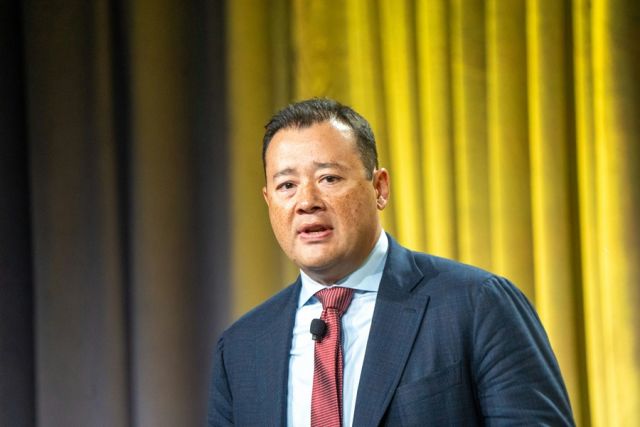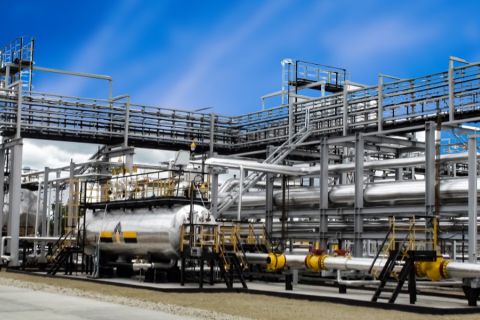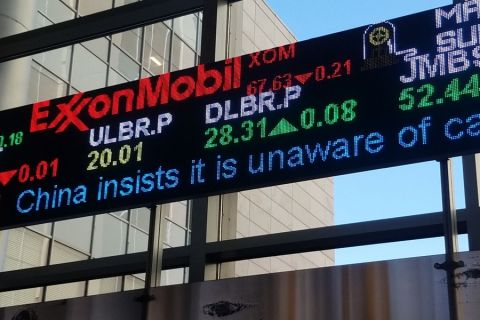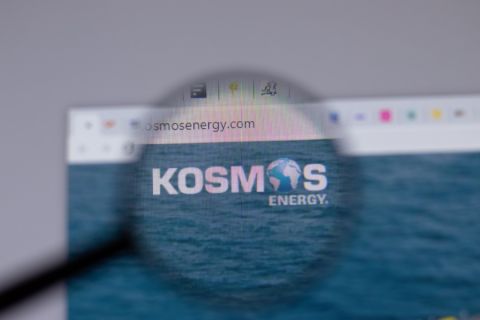
The Barnett Shale is “ripe for fracks” and offers opportunities to boost natural gas production to historic levels, BKV Corp. CEO and Founder Chris Kalnin said at the DUG GAS+ Conference and Expo. (Source: Hart Energy)
SHREVEPORT, La. -- The Barnett Shale, with its steady, low declining natural gas, offers opportunities to boost production to historic levels, BKV Corp. CEO and Founder Chris Kalnin said March 28 at the DUG GAS+ Conference and Expo.
The right techniques just need to be applied.
Kalnin said the Barnett’s production, which peaked at around 5 Bcf/d, is now below 3 Bcf/d. But, the “Barnett is ripe for refracs.”
“We think [the Barnett] is one of the forgotten basins and there's a ton of running room to bring that play back up to the historical levels and serve the LNG demand and push out some of the gas that might be trying to fight us from the Permian,” Kalnin said.
“You can imagine gen one fracs that were done with all sorts of spacing and all sorts of meat left on the bone with the Barnett wells, that there's a huge opportunity to go back in there.”
Kalnin said BKV was the top refrac company in the U.S. Between 2021 and 2023. The Denver-based company conducted 369 refracs “in a very customized way for each well,” he said.
BKV’s combined production averages about 872 MMcf/d from more than 7,000 producing wells, with the bulk coming from the Barnett in Texas and the rest from the Marcellus Shale in northeastern Pennsylvania.
But Kalnin said the ultimate test for any company was its ability to generate free cash flow.
“That' it. It's not how big your wells are. It's not how big your fracs are. It's not how many wells of inventories, it is can you as a company consistently risk adjusted generated cash through the cycle,” Kalnin said.
Kalnin said that if BKV spent nothing on capex for one year its corporate decline rate from all its wells would be “11.6% exit to exit,” or about one third of a half of a set.
“So, we are able to turn our capex spigot on and off very quickly. And that's because of the Barnett shale that we are the largest producer … that allows us to generate free cash flow,” Kalnin said.
Pac-man strategy
Kalnin said BKV’s growth has been primarily through M&A. Two recent accretive acquisitions – from Devon Energy Corp. in 2019 and Exxon Mobil Corp. in 2022 – allowed the company to build its position albeit at two extreme parts of the market, he said.
The $570 million Devon deal added 597 MMcfe/d to BKV, as well as 289,000 net acres. The $750 million Exxon Mobil upped production another 225 MMcfe/d and added 165,000 net acres.
“We are an M&A engine and M&A shop and that's how we built our position,” Kalnin said. “The strategy here is pretty simple, it's called the Pac-Man strategy. You just eat from, in our view, left to right. That's our strategy.”
CCUS and Barnett zero
Kalnin sees natural gas the fuel of the future, not a bridging fuel. But the company is taking emissions seriously.
BKV is working in the carbon capture and storage (CCS) space where it is targeting smaller-scaled high concentration economic projects.
“Let's be clear, I think the carbon capture business will be dominated by the majors, that's right in their wheelhouse,” Kalnin said. “However, there will be a space to play. That is a niche area that BKV believes that we can really capitalize on.”
BKV has already announced a final investment decision on two CCS projects: Barnett Zero and Cotton Cove. Barnett Zero has been operational since fourth quarter 2023 while Cotton Cove will commence initial injections in the first half of 2025.
“Here's our plan: we want to get to 1 MMton [of CO2 sequestered] in the next three years, we're already approaching a quarter [of one] million tons of CO2 being sequestered as we speak, and then we're going to get to over 13 MMton by the end of the decade and into the early 2030,” Kalnin said. “This will completely offset the entire combustion value of our production and you can only do that with natural gas.”
Recommended Reading
What's Affecting Oil Prices This Week? (April 29, 2024)
2024-04-29 - Stratas Advisors says even with the reported drawdown in U.S. crude inventories, the price of Brent crude oil remains below the upward channel that had been in place since January of this year.
Tivoli Midstream Buys Southeast Texas Coast Infrastructure
2024-04-29 - Tivoli Midstream acquired the Chocolate Bayou from Ascend Performance Materials, including storage and land for development.
Markman: Want CO2 Gone Now? Well, You Don’t Always Get What You Want
2024-04-29 - A slew of scenarios shows that climate goals can be achieved with the use of fossil fuels and CCUS.
ProPetro to Provide eFrac Services to Exxon’s Permian Operations
2024-04-29 - ProPetro has entered a three-year agreement to provide electric hydraulic fracturing services for Exxon Mobil’s operations in the Permian Basin.
Kosmos Energy’s RBL Increased, Maturity Date Extended
2024-04-29 - Kosmos Energy’s reserve-based lending facility’s size has been increased by about 8% to $1.35 billion from $1.25 billion, with current commitments of approximately $1.2 billion.






